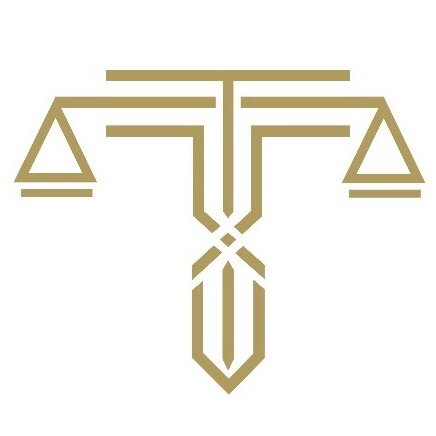Best Restructuring & Insolvency Lawyers in Khobar
Share your needs with us, get contacted by law firms.
Free. Takes 2 min.
List of the best lawyers in Khobar, Saudi Arabia
About Restructuring & Insolvency Law in Khobar, Saudi Arabia
Restructuring and insolvency are critical elements of business law in Khobar, Saudi Arabia, especially given the region's dynamic commercial environment. The concepts relate to processes and legal remedies available to individuals and companies facing financial distress. Restructuring involves reorganizing a company's debts or operations to restore stability and enable continued operations. Insolvency, on the other hand, refers to situations where an entity is unable to meet its financial obligations as they fall due and may require formal legal proceedings. Saudi Arabia's legal framework for restructuring and insolvency has evolved in recent years, aiming to facilitate fair outcomes for both debtors and creditors, promote business sustainability, and align with international best practices.
Why You May Need a Lawyer
Legal assistance is often crucial in restructuring and insolvency matters for both individuals and businesses. Common scenarios where you may require a lawyer include:
- Assessing the financial health of your business and exploring available restructuring options
- Negotiating with creditors for debt settlements, rescheduling, or reductions
- Filing for insolvency or bankruptcy under Saudi law and ensuring compliance with procedural requirements
- Defending against creditor lawsuits or enforcement actions
- Advising on directors' duties and potential liabilities during insolvency
- Managing the sale or protection of assets during financial distress
- Representing your interests in court-supervised proceedings
Given the technical nature of restructuring and insolvency law, as well as the potential risks involved, seeking legal advice early can increase the chances of a successful resolution.
Local Laws Overview
The cornerstone of restructuring and insolvency law in Khobar, Saudi Arabia, is the Kingdom's Bankruptcy Law and its implementing regulations, which were introduced in 2018. This law represents a comprehensive shift towards a modern system for handling financial distress and insolvency, consistent with international best practices. Some key features include:
- Variety of procedures, such as preventive settlement, financial restructuring, and liquidation, to address different levels of financial distress
- Clear processes for the appointment of trustees and committees to supervise insolvency proceedings
- Provisions for automatic moratoriums, temporarily protecting debtors from individual creditor claims during proceedings
- Transparent creditor rights and priorities for distributing assets
- Mechanisms for reorganizing debts, which may include payment plans, asset sales, or restructuring company operations
- Protection of employees' rights within insolvency processes
- Potential for cross-border insolvency recognition subject to specific legal provisions
Saudi courts, especially specialized commercial courts, play a central role in administering these legal processes in Khobar and across the Kingdom. Compliance with formal requirements, deadlines, and proper documentation is essential to obtain legal protection and avoid further financial liabilities.
Frequently Asked Questions
What is the difference between restructuring and insolvency in Saudi law?
Restructuring is a process where a business reorganizes its debts or operations to avoid insolvency and continue operating. Insolvency refers to a state where a business or individual cannot meet their financial obligations, potentially leading to court-supervised liquidation or other legal proceedings.
Who can apply for restructuring or insolvency procedures in Khobar?
Both individuals and companies operating in Saudi Arabia, including foreign businesses with operations in Khobar, can apply for restructuring or insolvency under the Saudi Bankruptcy Law.
What are the available procedures for financially distressed companies?
The main procedures are preventive settlement, financial restructuring, and liquidation. Each has different eligibility requirements, objectives, and legal effects.
What is a preventive settlement?
Preventive settlement is a debtor-initiated process aiming to reach an amicable arrangement with creditors before insolvency occurs. It allows a business to continue operating while negotiating new payment terms.
How are creditors' rights protected during insolvency processes?
Creditors are grouped and prioritized according to the Bankruptcy Law, and their rights are represented by committees. Distribution of assets follows strict legal priorities to ensure fair treatment.
Can a company continue operating during restructuring?
Yes, in many cases, businesses are allowed to continue operations under supervision during financial restructuring or preventive settlement, subject to court approval and oversight by appointed trustees.
What is an automatic moratorium?
An automatic moratorium temporarily suspends most individual creditor actions against a debtor once insolvency or restructuring proceedings are initiated, giving the debtor breathing space to reorganize or negotiate with creditors.
Are there any risks for directors during insolvency?
Yes, directors have specific duties during financial distress, including acting in the best interests of creditors and stakeholders. Breaching these duties can result in personal liability or other legal consequences.
How long do restructuring or insolvency proceedings take?
The timeline varies based on the complexity of the case and the type of proceedings but generally ranges from several months to over a year for larger or more complex matters.
Is it possible to restructure or liquidate debts involving foreign creditors?
Yes, the Bankruptcy Law provides for handling cases with international aspects, including recognition of some foreign insolvency proceedings, subject to Saudi legal requirements.
Additional Resources
Individuals and businesses in Khobar seeking further assistance on restructuring and insolvency may consult the following resources:
- Saudi Bankruptcy Commission - the governmental authority overseeing bankruptcy proceedings, providing guidance and public resources
- Ministry of Commerce - offers information and enforcement related to company law and bankruptcy
- Commercial Courts in Khobar and the Eastern Province - handle legal proceedings related to restructuring and insolvency
- Licensed law firms specializing in corporate restructuring and insolvency cases
- Chambers of Commerce and Industry in Khobar - may offer business support or mediation services
Next Steps
If you are facing financial distress, considering restructuring, or confronting insolvency issues in Khobar, Saudi Arabia, consider the following steps:
- Assess your financial situation and gather all relevant financial documentation
- Consult with a qualified legal professional experienced in Saudi restructuring and insolvency law
- Discuss your options, including preventive settlement, restructuring, or liquidation, and understand the potential outcomes of each
- Work closely with your lawyer to initiate the appropriate legal process and ensure compliance with all legal requirements
- Maintain open communication with creditors and relevant authorities
- Monitor deadlines, fulfill documentation requirements, and participate in court hearings as needed
Taking prompt, informed action with legal support will help protect your interests and maximize the likelihood of a favorable resolution in restructuring and insolvency matters in Khobar, Saudi Arabia.
Lawzana helps you find the best lawyers and law firms in Khobar through a curated and pre-screened list of qualified legal professionals. Our platform offers rankings and detailed profiles of attorneys and law firms, allowing you to compare based on practice areas, including Restructuring & Insolvency, experience, and client feedback.
Each profile includes a description of the firm's areas of practice, client reviews, team members and partners, year of establishment, spoken languages, office locations, contact information, social media presence, and any published articles or resources. Most firms on our platform speak English and are experienced in both local and international legal matters.
Get a quote from top-rated law firms in Khobar, Saudi Arabia — quickly, securely, and without unnecessary hassle.
Disclaimer:
The information provided on this page is for general informational purposes only and does not constitute legal advice. While we strive to ensure the accuracy and relevance of the content, legal information may change over time, and interpretations of the law can vary. You should always consult with a qualified legal professional for advice specific to your situation.
We disclaim all liability for actions taken or not taken based on the content of this page. If you believe any information is incorrect or outdated, please contact us, and we will review and update it where appropriate.













